##<span style="color:#003d75">**How to Handle HVAC Emergencies During Peak Seasons**##
Peak seasons in the HVAC industry — winter and summer — bring increased demand and potential for emergencies. As a wholesale distributor, you play a crucial role in supporting your contractor customers during
these times. Ensuring they have the necessary resources and guidance can make all the difference in handling HVAC emergencies efficiently.
<p>This article outlines strategies for handling HVAC emergencies during peak seasons, helping your contractor customers keep their clients satisfied and comfortable.
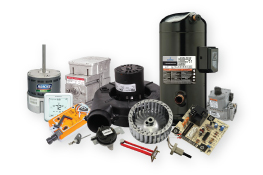
**1) Stock Essential Parts and Equipment**
<p>During peak seasons, HVAC emergencies often arise from equipment failures. Ensure your inventory includes essential parts and equipment that are prone to failure during high usage periods. Key items to stock
include: *Compressors, Blower motors, Thermostats, Capacitors, Filters and Refrigerants.*
<p>Keeping a well-stocked inventory minimizes downtime for contractors, enabling them to address issues promptly.
**2) Offer Extended Hours and Emergency Support**
<p>Emergencies don’t adhere to business hours. Consider extending your hours of operation during peak seasons and providing an emergency support hotline. This ensures that contractors can access the parts and
assistance they need, even outside regular business hours. Clear communication about your extended hours and emergency support services will help contractors plan accordingly.
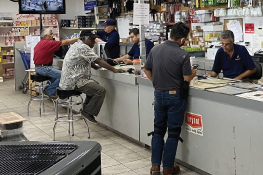
**3) Provide Technical Support and Training**
<p>Equip your team with the knowledge to assist contractors with technical questions and troubleshooting. Regular training sessions for your staff on the latest HVAC technologies and common issues can enhance
their ability to support contractors effectively. Additionally, offering training sessions or webinars for your contractor customers can empower them to handle emergencies more confidently.
**4) Implement an Efficient Ordering System**
<p>During peak seasons, efficiency is critical. An efficient ordering system, whether through an online platform or a dedicated phone line, can streamline the process for contractors needing parts quickly. Ensure your
system is user-friendly and capable of handling increased traffic during peak times. Offering same-day or expedited shipping options can also be a game-changer in emergency situations.
**5) Communicate Proactively**
<p>Proactive communication can prevent many emergencies or at least mitigate their impact. Send regular updates to your contractor customers about inventory levels, new products, and potential issues related to
peak season demands. This information allows contractors to prepare adequately and avoid common pitfalls.
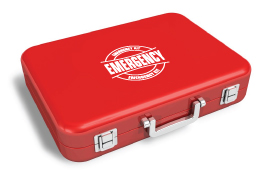
**6) Create Emergency Kits**
<p>Consider creating and promoting emergency kits that contractors can keep on hand. These kits can include commonly needed parts and tools for quick fixes. By having these kits readily available, contractors can
respond to emergencies more effectively without waiting for parts to arrive.
**7) Offer Financing Options**
<p>Emergencies can put financial strain on contractors, especially if they need to purchase expensive equipment on short notice. Providing flexible financing options or payment plans can help contractors manage
their cash flow during peak seasons. This support can be crucial in enabling them to take on emergency repairs without hesitation.
**8) Build Strong Relationships with Manufacturers and Master Distributors**
<p>Strong relationships with manufacturers and **master distributors like Neuco** can be invaluable during peak seasons. These relationships can ensure quicker restocking and access to critical parts. Establishing direct lines of communication with
manufacturers can also provide you with early warnings about potential supply chain disruptions, allowing you to plan accordingly.
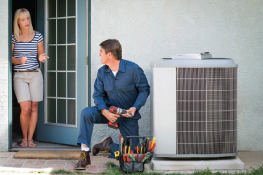
**9) Educate Customers on Preventive Maintenance**
<p>Encourage your contractor customers to educate their clients on the importance of preventive maintenance. Regular maintenance can reduce the likelihood of emergencies during peak seasons. Providing
contractors with educational materials, checklists, and promotional items about preventive maintenance can support this effort.
**10) Gather and Share Customer Feedback**
<p>Collecting feedback from your contractor customers can highlight areas for improvement and success stories that can be shared with others. Use this feedback to refine your processes and share best practices
through newsletters, blog posts, or webinars. This continuous improvement loop can enhance your service quality and help contractors better handle emergencies.
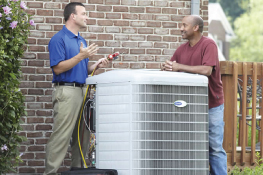
**Conclusion**
<p>Handling HVAC emergencies during peak seasons requires preparation, communication, and support. As a wholesale distributor, your role is critical in ensuring that contractors have the resources they need to
respond effectively. By stocking essential parts, offering extended hours, providing technical support, and fostering strong relationships, you can help your contractor customers navigate the challenges of peak
season emergencies with confidence. Your proactive approach will not only enhance their efficiency but also strengthen your reputation as a reliable partner in the HVAC industry.
Copyright © 2007 - 2025 Neuco Inc. All Rights Reserved.



